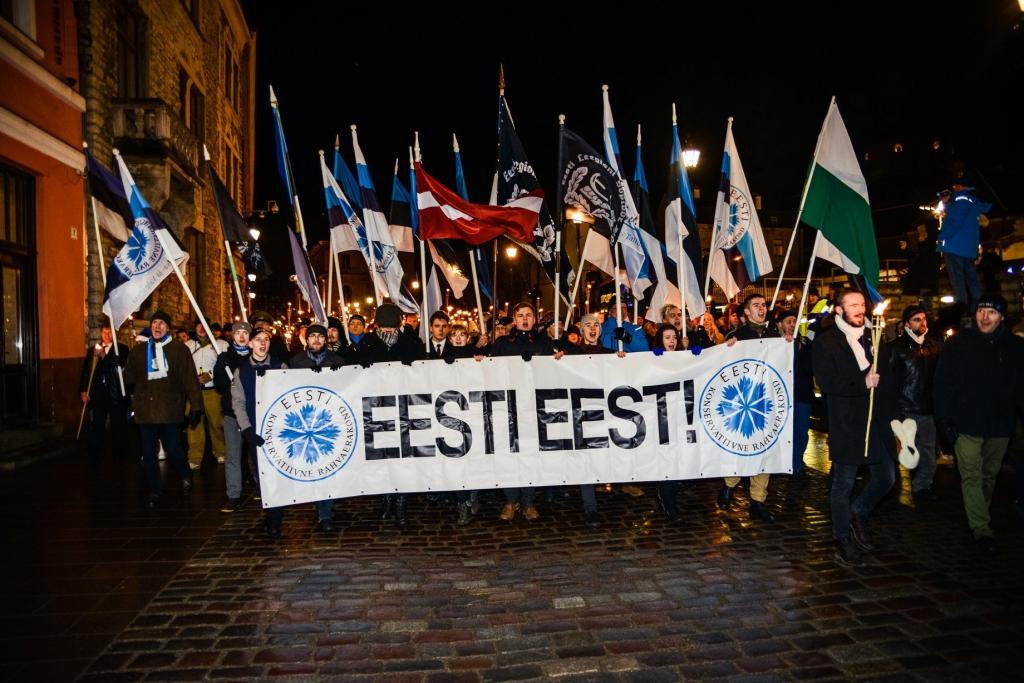Benjamin Klasche, a PhD candidate at Tallinn University and a German expat living in Tallinn, gives his view as to what drives people to vote for extreme parties like the Estonian Conservative People’s Party.
We live in tumultuous times. Globally, we have to deal with an environmental crisis that appears hard to pinpoint and even harder to solve. We are also facing growing migration flows within and beyond all continental borders.
In Europe, we are watching the looming Brexit creating the European Union’s biggest legitimacy crisis in its history and a growth of anti-constitutional – and therefore anti-democratic – forces in basically all European states. We live in the times of crises, in the form of complex problems that have no easy solutions. Even worse, often we do not know how a solution could even look like.
These crises are manifesting itself also in Estonia. People appear to deal differently with these phenomena. Some are hitting the streets, demanding from our politicians to adequately address these issues. Some have lost their faith in the ability of our politicians and give their votes to parties whose programmes are built on this exact shortcoming.
This also happened three weeks ago in the Estonian parliamentary election, in which the Conservative People’s Party of Estonia (EKRE) recorded its best election result (17.8%) yet. The opposers and the critics of EKRE’s ideology and political agenda are quickly ready to call their leadership and their supporters as stupid, populist, xenophobic, racist and more of the same, while they should be trying to understand why this party (and others alike) are gaining support.
Fears are hard to control
I have done it myself. I have lumped all supporters of extreme right-wing parties together and put negative labels on them, instead of imagining myself in their situation. Let me introduce myself a little bit more and make this point clear.
So far, I have led a life of great privilege that has allowed me to travel, study and live abroad, and therefore come in contact with many different people and cultures and learn about their history and view on the world. These privileges have made me in Zygmunt Bauman’s view a Tourist. A cosmopolitan, who can adapt anywhere and feel at home. A person that thrives in the age of globalisation and can only see it as an enrichment to himself and others.
Not everybody feels this much home out there in the world. In fact, most people do not feel this way (sometimes I also do not). By no means does that make them lesser people. They are just living in a world where other things matter more. A world where the feeling of home is based on familiarity. Familiarity with the land, the people, the language, the daily life. This is also a world where the thought of losing familiarity could lead to the loss of one’s home. I can only imagine how it must feel to be daily afraid of losing one’s home and when I do imagine it, it does feel terrible. Our fears are hard to control and appear often irrational even to ourselves.
Start talking to each other again
Now, we live in a world that is organised by states. Most of us come from one and belong to one. Theoretically, states have great benefits for their citizens. There are here first and foremost to keep us citizens safe and provide us with conditions that allow us to live a comfortable life. In other words, they allow us to make a home for ourselves and free us of fear.
What if we lost the faith in our states to provide exactly this? What if we think the current setup, in which governments are formed by interchangeable mass parties, is not working? What if we are afraid that we could lose our home because of this? This is exactly where parties like EKRE come in.
They instrumentalise the fear of their voters. They are loudly confirming that the government is incapable of taking care of its citizens. They focus on topics such as immigration, minorities and the demise of culture and exaggerate the impact that refugees could have. Instead of removing fears, they go the opposite route and intensify them. They make it look like they have extreme simple solutions to the extremely complex problems our society is facing. Naturally, this sounds like a great deal, but simple solutions have no chance of solving complex problems.
It is not the fault of the people that they are afraid. It is the fault of governments, politicians, societal leaders and frankly the fault of the unafraid ones that they have not been able to erase these fears. It is the fault of us, as a society, because we constantly fail to communicate the right way, we are incapable of explaining this highly complex world with its even more complex problems and challenges.
Only if we can grow back together, start talking to each other again, overcome the growing trenches of division between us, do we have a chance of tackling the large problems at our hands. If we don’t do that, we might all be in danger of losing our homes.
I
The opinions in this article are those of the author. Cover: A torch march organised by EKRE on 24 February 2019 (the image is illustrative).

